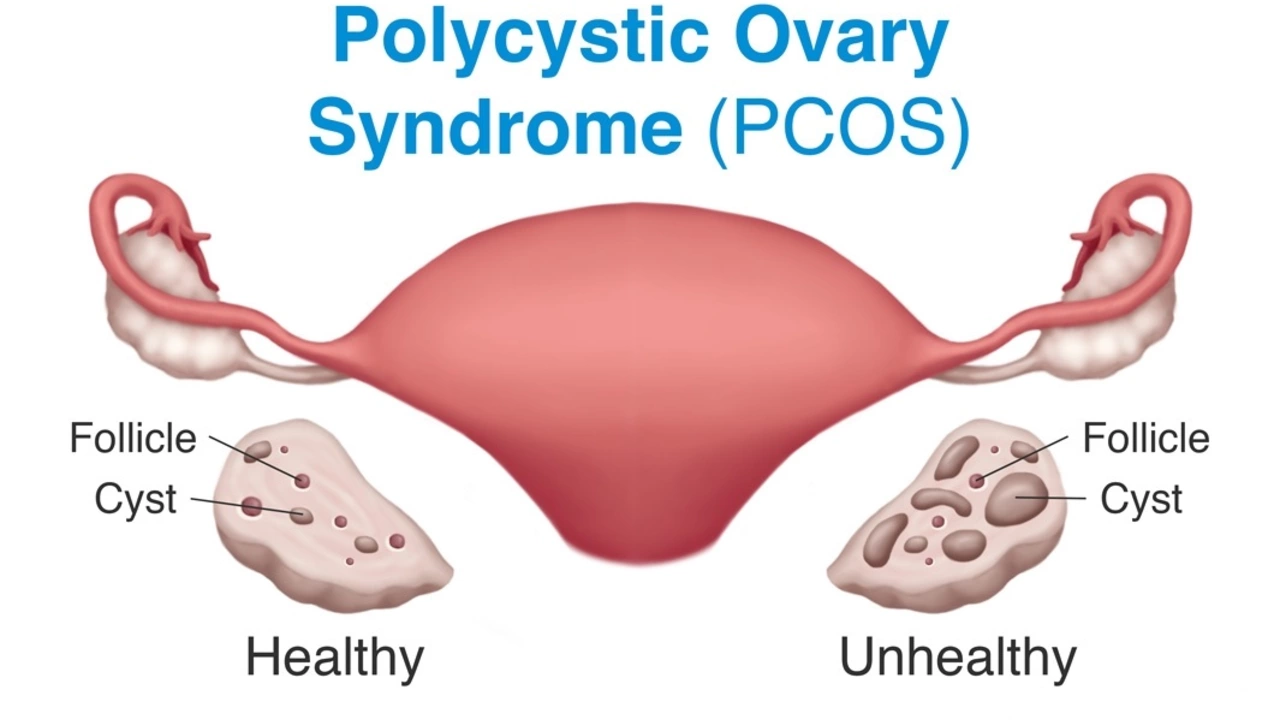Understanding PCOS: A Real Talk About Polycystic Ovary Syndrome
If you've heard about PCOS but aren't quite sure what it means, you're not alone. PCOS, or polycystic ovary syndrome, is a common hormonal condition in women that can cause a mix of symptoms and sometimes make life tricky. It's linked to how your hormones work, especially those that affect your periods, weight, and even your mood.
The most common signs you might notice include irregular or missed periods, weight gain that's hard to shed, unwanted hair growth in places like the face or chest, and sometimes skin issues like acne. Not everyone with PCOS has cysts on their ovaries, even though the name suggests so, and diagnosing it usually means a look at symptoms, blood tests, and sometimes an ultrasound.
What's Behind PCOS? Causes Made Simple
PCOS comes down to a few key hormone imbalances. Your body might be producing extra androgens—those are male hormones that women have in small amounts. This shift messes with your normal cycles and can cause the symptoms mentioned earlier. Insulin resistance also plays a big part, where your body doesn’t use insulin properly, which can lead to weight gain and increase your risk for diabetes. Genetics and lifestyle factors like diet and exercise also influence how PCOS shows up.
Managing PCOS: What Works and How to Start
The good news? There are plenty of ways to handle PCOS so it doesn’t take over your life. Doctors often suggest lifestyle changes first—things like improving your diet and staying active can make a big difference. Losing even a small amount of weight can help balance hormones better. For some, medications like birth control pills help regulate periods and reduce unwanted hair. Others might get medications for insulin resistance or fertility if that’s a concern.
It’s also crucial to keep an eye on mental health since PCOS can bring stress, anxiety, or depression. Support groups, counseling, or just talking openly with your doctor can be game-changers. Remember, managing PCOS is really personal; what works well for one person might not be the best fit for another.
To stay ahead of PCOS, regular check-ups and blood tests help track your hormone levels and overall health. It’s better to catch changes early and adjust your plan than to let symptoms pile up. If you think you might have PCOS or want to learn more, reach out to a healthcare provider who can give advice tailored to you.
The Connection Between Vaginal Burning and Polycystic Ovary Syndrome (PCOS)
In my recent blog post, I delved into the intriguing connection between vaginal burning and Polycystic Ovary Syndrome (PCOS). I discovered that hormonal imbalances caused by PCOS can lead to vaginal dryness, which in turn triggers discomfort and burning. It's important to note that vaginal burning isn't a direct symptom of PCOS, but rather a side effect of these hormonal changes. If you're experiencing these symptoms, it's critical to consult with your healthcare provider for appropriate treatment. Remember, understanding your body and the possible signs of conditions like PCOS is a crucial step in maintaining overall health.

